¡Shaindel se fue al campamento!
No puedo creer que después de todas las compras, empacar, organizar, preocuparse, imaginar, entrar en pánico y, sobre todo, anticipar... hayamos llegado allí.
Siento una sensación física de alivio. Es curioso, porque cuando está en casa, no me siento realmente estresado, es solo rutina. Pero cuando no lo está, me sorprende la repentina sensación de libertad.
Pero empecemos por el principio.
Hace quince años, nació Shaindel, una niña dulce y saludable. A los dieciséis meses, caminaba, hablaba, le encantaba divertirse y era adorable, hasta que la sacaron del agua, casi muerta.
Me saltaré los detalles del viaje en ambulancia, los tres meses en la UCI, el tiempo que pasamos en rehabilitación... pero cuando todo terminó, volvimos a casa con un hijo muy diferente al que teníamos antes. Shaindel era un bebé tenso, agitado e indefenso.
Los siguientes meses los dedicamos a trabajar para obtener la aprobación para la intervención temprana, a encontrar nuestro camino en la «nueva normalidad» de terapeutas y voluntarios que entran y salen de la casa, a aprender a cuidar a un niño con muchas necesidades físicas y a vivir con una enfermera nocturna.
Shaindel es mi segundo hijo, así que no estaba ocupado con una familia numerosa en ese momento, pero cuidar de una familia pequeña también te mantiene ocupado, y también tenía un grupo de juego en mi sótano. Casi exactamente nueve meses después del accidente de Shaindel, tuve otro bebé, así que estaba haciendo muchos malabares.
Cuando salimos del centro de rehabilitación, una enfermera me dijo: «Tu nuevo mejor amigo será el 911». Chasdei Hashem, a pesar de las discapacidades y minusvalías, Shaindel siempre estuvo muy sano. Puedo contar con mis dedos la cantidad de llamadas de emergencia y hospitalizaciones que hemos tenido a lo largo de los años.
Hay tantos brachos en el desafío. Tenemos la suerte de tener una escuela increíble, un increíble programa extracurricular y dominical, y tantas niñas, familias y voluntarios maravillosos que están ahí para ayudar a que nuestras vidas sean más manejables.
Hashem también se inclinó yo con una naturaleza tranquila y feliz, lo que hace que las cosas sean mucho más fáciles de manejar. ¡Encontramos el humor en todo y nos reímos mucho! Shaindel también tiene una personalidad divertida y un gran sentido del humor, a pesar de que no puede hablar. Le encanta pasar un buen rato, y le hablamos en rimas y le cantamos muchas canciones tontas. Cuando Shaindel se ríe, todos se ríen.
Y podría escribir un libro sobre lo increíble hashgachah vemos en nuestras vidas. Estos son solo algunos de mis ejemplos favoritos:
Hace unos años, tenía un montón de recados que hacer en el vecindario. Tenía a Shaindel en silla de ruedas y mi hermana me acompañó para empujar el cochecito del bebé, y caminamos un rato con Shaindel, el bebé y los demás niños.
Terminó tardando más de lo que pensábamos y todos estaban agotados, además de que había empezado a llover. Decidí que tendríamos que llamar a un servicio de automóviles para llegar a casa. Pero, ¿cómo meteríamos a todos en el coche?
La silla de ruedas de Shaindel no se doblaba y también teníamos el cochecito. Empezaba a preocuparme tratando de averiguarlo, y entonces el coche se detuvo junto a nosotros: ¡un coche grande con un elevador para sillas de ruedas!
Nunca he tenido eso antes o después. ¿Qué posibilidades había de que llegara un automóvil accesible para sillas de ruedas? Fue un gran abrazo de Hashem.
En otra ocasión, faltaban solo dos semanas para mi fecha de parto y no sabía qué haría con Shaindel cuando tuviera que ir al hospital. La chica que normalmente me ayudaba con ella acababa de casarse, y otra chica que era increíble con Shaindel estaba cursando un seminario en el extranjero. Y luego, la semana que tenía que nacer, recibí una llamada de la chica del seminario: tenía dos semanas de vacaciones y había volado a casa.
«Sé por qué estás en casa», le dije. «¡Es porque te necesito aquí!»
Y así de fácil, tenía a alguien a quien llamar cuando fui al hospital. Vino, empacó a Shaindel y se la llevó a su casa durante unos días.
Hashem realmente cuida de nosotros.
En otra ocasión, acabábamos de empezar a alimentar a Shaindel por vía oral. Fue una época estresante. Tenía un montón de niños pequeños y era una tarea extremadamente tediosa, esperar a que Shaindel abriera la boca, contar las cucharadas, tratar de no frustrarme cuando la mayoría de la comida saliera...
Luego llamó un amigo mío. La amiga de su hermana se había mudado al vecindario y estaba aburrida. Siempre había dedicado su tiempo a trabajar como voluntaria con niños con necesidades especiales, pero no conocía a nadie aquí que la ayudara. ¿Y dónde vivía? ¡Justo enfrente de mí!
Así que empezó a venir a cenar a nosotros todos los días, y fue una situación en la que todos salimos ganando.
Ha ocurrido muchas veces que teníamos planes para el Shabat o una simjá, y antes de que levantara el teléfono para empezar a hacer los arreglos, invitaron a Shaindel a salir para el Shabat. ¡Tantas veces!
Esos son los pequeños abrazos que nos hacen seguir adelante. Porque definitivamente hay desafíos. Los cumpleaños, por ejemplo, son un momento difícil. Shaindel tiene quince años y depende totalmente de todas sus necesidades. No puede hablar, aunque es receptiva y amigable, y le encanta la música, los libros y los buenos chistes. Durante la noche, se alimenta con una sonda gástrica y come algunos alimentos en puré durante el día. Es pequeña para su edad, pero ha crecido mucho en los últimos dos años, así que hago mi parte de ejercicio.
La idea de que crezca, y todo lo que eso significa, da un poco de miedo. Intentamos tomar las cosas como vienen y no estresarnos por el futuro.
Recientemente, hemos estado lidiando con convulsiones, probablemente parte del proceso de maduración de Shaindel. Esto me ponía muy ansiosa: cada vez que se ve distraída, rápidamente empezamos a tocar música o a cantar para ver si reaccionamos. Me doy cuenta de que es solo una fase pasajera.
Pero a pesar de que hay partes desafiantes para mí, siempre pienso que ensayo es realmente de Shaindel. Está encerrada en su cuerpo, no puede decirnos si se siente incómoda y no puede compartir su opinión, aunque definitivamente la tiene. No puede ahuyentar a una mosca ni quitarse un pelo de la cara. No puede decirme si está hambrienta, sedienta, cansada, fría, aburrida o molesta. No puede bailar con su música favorita, ni elegir su ropa, ni contarme lo que pasó en el autobús...
Un Shabat de Motzaei, iba a un evento social para madres de niños con necesidades especiales. Y pensé para mis adentros: ¿en serio? Acabo de pasar un buen Shabat, comiendo, acurrucada en el sofá mientras Shaindel estaba tirada en el suelo o sentada en su silla a merced de los demás, esperando pacientemente que me entretuvieran, se alimentaran o se asearan, ¿y a mí me invitan a salir por la noche?
Por eso estoy agradecido de poder enviarla al campamento. Para mí, es un descanso, pero lo que es más importante, para Shaindel es diversión y entretenimiento a tiempo completo.
El primer año que estuvo, le escribí el siguiente poema, que es como terminaré:
Queridísimo Shaindel:
Ahora que ha llegado el momento y realmente te vas
Mis emociones, miedos y amor siguen creciendo
Hay partes de ti que me gustaría que pudieras dejar
Y otros de los que no me importa sentirme aliviado
Cuando gritas tan fuerte que las paredes pueden temblar
¡Definitivamente es algo que podrías tomar!
Pero echaré mucho de menos las suaves mejillas de tu bebé
Los guardaría en el bolsillo para poder besarlos
Tus lindas manitas que tanto me gustan
Me pondría debajo de la almohada para acariciar y tocar
La culpa constante cuando te acuestas boca arriba
Llévate lejos y nunca devuelvas
Puedo soportar estar sin su enfermera durante un tiempo.
Pero, ¿cómo esperas que me las arregle sin tu sonrisa?
Tu emoción cuando Tatty llega a casa y te lleva a la cama
Te ríes cuando lees tus libros familiares
Tu deleite cuando escuchas tu canción favorita —
¿Estás seguro de que debes llevarlos contigo?
No me perderé la alimentación y especialmente lo que venga después
Pero, oh, voy a extrañar la diversión y la risa
Pero como es un paquete y es todo o nada,
Te dejaremos ir porque sabemos que te divertirás
¡Y estaremos esperando con impaciencia cuando acabe el verano!













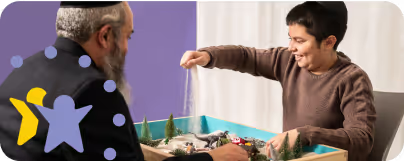
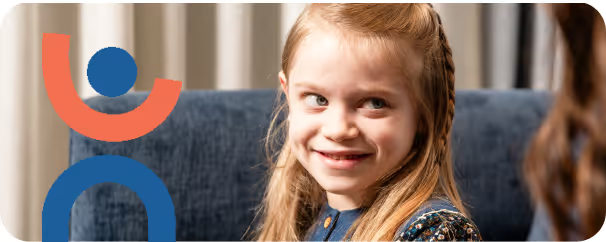


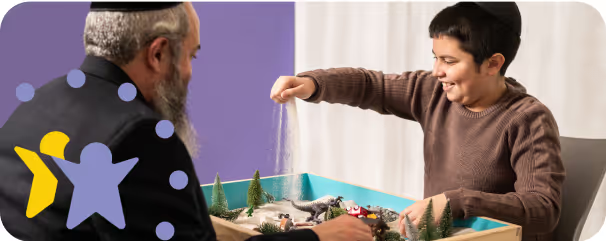
.avif)

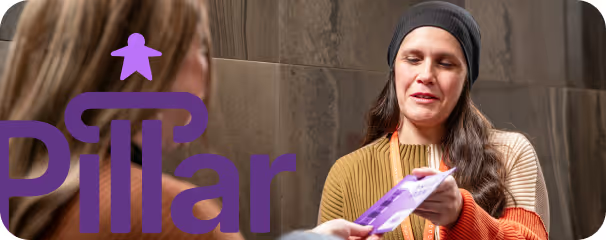
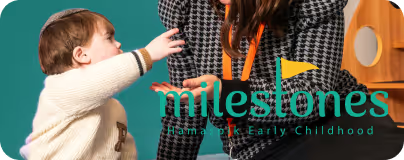

.avif)

.png)











